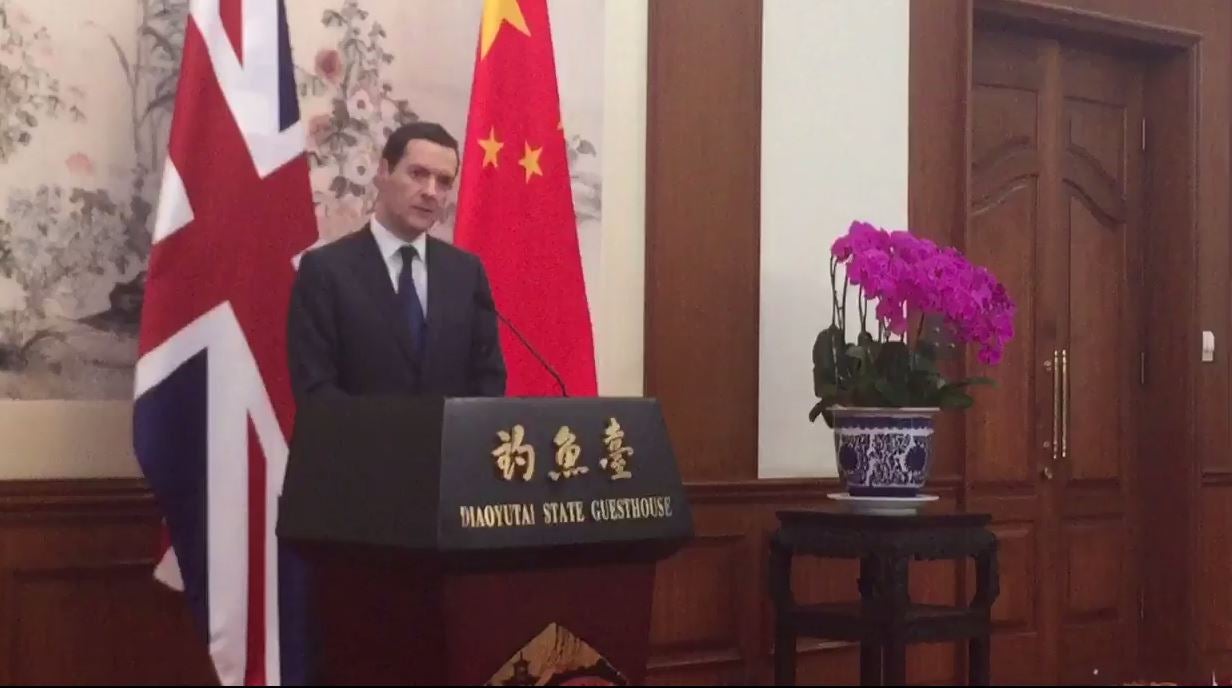The Independent's journalism is supported by our readers. When you purchase through links on our site, we may earn commission.
Hinkley Point: Reasons not to be suspicious of Chinese nuclear investment
It would seem to be an overreaction to cancel this project on security grounds. Nuclear power plants – whoever owns them are inevitably going to be closely regulated and inspected by the British state

Your support helps us to tell the story
From reproductive rights to climate change to Big Tech, The Independent is on the ground when the story is developing. Whether it's investigating the financials of Elon Musk's pro-Trump PAC or producing our latest documentary, 'The A Word', which shines a light on the American women fighting for reproductive rights, we know how important it is to parse out the facts from the messaging.
At such a critical moment in US history, we need reporters on the ground. Your donation allows us to keep sending journalists to speak to both sides of the story.
The Independent is trusted by Americans across the entire political spectrum. And unlike many other quality news outlets, we choose not to lock Americans out of our reporting and analysis with paywalls. We believe quality journalism should be available to everyone, paid for by those who can afford it.
Your support makes all the difference.It’s a funny old world when the Chinese Communist Party, notorious for its hyper-secretive style of decision making from deep in its Zhongnanhai compound in Beijing, complains about inscrutable and arbitrary shifts in your own government’s policy.
But that’s the paradoxical situation we’re in thanks to the Hinkley Point fiasco.
The Xinhua news agency, understood to give voice to the vaguely official position of Beijing, has said it is baffled by the UK's decision not to give the nuclear investment deal the green light and has effectively told Theresa May’s government to stop having such a “suspicious” mind about China.
To be fair to the Chinese, coming after George Osborne’s relentless love-bombing of Beijing over much of the past six years, May’s pause to “consider” Hinkley must feel rather discombobulating.
And wasn’t the great fear of Remainers (May among them) that the UK would be a less attractive destination for foreign investment in the wake of a Brexit vote?
Up pitch the Chinese with the offer of following through on a long-planned £5bn investment in Somerset and the British government’s response is: “hmm, let us have a think”.
Some people are never satisfied.
We learned from Vince Cable, the former business secretary, at the weekend that May was always uncomfortable with the thought of giving Beijing an important role in our infrastructure, whether that was telecoms or nuclear energy.
That certainly fits with what her policy adviser Nick Timothy wrote last year for the Conservative Home website when he cited concerns that the Chinese could “use their role to build weakness into computer systems which will allow them to shut down Britain’s energy production at will”.
Are these fears warranted?
We shouldn’t be blasé about national security, nor the increasingly authoritarian and bellicose drift of Xi Jinping’s government.
Yet it would seem to be an overreaction to cancel this project on security grounds.
In his Conservative Home piece Timothy cited the fact that one of the Chinese nuclear companies involved in the Hinkley plans says on its website that it sees one of its roles as “building national defence”.
But this is pretty standard rhetorical fare for Chinese state-owned corporates. There is a danger of reading too much into it.
It’s a stretch to believe that the Chinese have some sort of secret plan to sabotage the UK energy supply (or to retain the option of doing so), not least because this would destroy their own sizeable investment in the process and wreck their genuine aspirations to move up the engineering value chain to escape the looming "middle income trap".
It’s also worth remembering that nuclear power plants, whoever owns them, are inevitably going to be closely regulated and inspected by the British state.
If there are security fears, this is the regime to beef up.
A better reason for May and her ministers to pause than security concerns is cost.
It’s widely acknowledged that the inflation-indexed 35-year price of £92.5 per megawatt-hour agreed by the previous Coalition government to buy Hinkley energy was too high.
The energy expert Nick Butler has estimated the UK government could reduce the price of energy from the new plant by 20 per cent by borrowing to fund a part of the project itself, locking in historic low state borrowing costs.
Xinhua has a point when it says Britons should not be reflexively suspicious of Chinese nuclear investment, or any other investment for that matter.
But we do have good reason to be suspicious of our own politicians’ professed ability to strike a good deal on our behalf.
Ben Chu is the author of Chinese Whispers: Why Everthing You've Heard About China is Wrong
Join our commenting forum
Join thought-provoking conversations, follow other Independent readers and see their replies
Comments